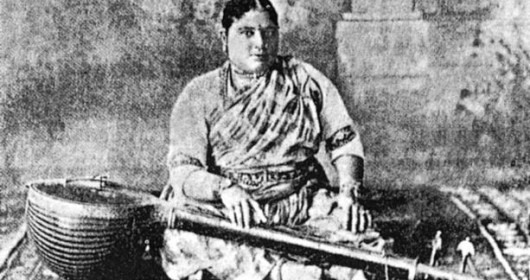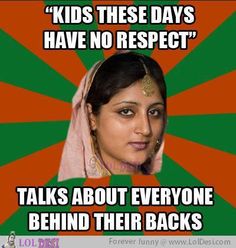Are we doomed to loneliness or are we choosing it?

A few years ago, one of my students who recently moved to India with her parents said, “My parents never get to spend time with us here. They had so much time, back home.” For work-life balance, better pay and for an environment that is mostly respectful of your work, most desis move out of their birth countries, but their ‘desiness’ never leaves them. It’s not necessarily a bad thing, but it definitely poses some obstacles in leading a “happy” life.
If you remember Anupam Kher’s dialogue in DDLJ, he says, “Hum to Hindustan ko apney dil mein liye ghoomtein hain!” That’s really the case with most immigrants, you could replace the name of the country, as per the context. The separation is very distinct in their minds, “We are not them” and them is anyone else from the new country, although those people are also immigrants.
An example that vividly strikes me is, “We shall invite our American friends today.” I was perplexed. “You are American, aren’t you?” They clarified, “White friends doesn’t sound good, does it?” “I guess it’s okay, I don’t know.” Nomenclature is kind of confusing, even after one has spent several years away from one’s home country. Especially in America, it’s more confusing than in Canada. It’s easier to find more immigrants call themselves Canadian in Canada, than American in America, unless it’s the second generation.
But one thing that binds all these people is their choice of loneliness. Although it is true that most desis abroad are going through similar emotional struggles, they find it difficult to bond with each other for myriad reasons. I haven’t been able to figure the exact reasons, because when you are in it, clarity is hazy.
I have been fortunate to meet desis of all age groups and varied nationalities over a period of two years, as a result of my profession, and in all those instances what struck me starkly was the inherent loneliness and their attachment to everything desi, although they claim to have moved on from it. During one of my interactions, I was speaking with a 60 year old woman, who had spent 45 years of her life in America. I asked her if she missed anything from India. Her first response was that she didn’t believe in staying attached to the past and had moved on from her home country. I was impressed but skeptical. And as we continued getting to know each other, it was revealed that she still imported “mukhwaas” and “sweets” from India as the taste of Indian products in America didn’t cut it for her.
They had friends, she said, but they didn’t meet all the time. The couple spent their free time together, mostly. They felt instantly attached to people they met from their home-country, but were at the same time, wary of them. “Nobody that close”, she said. “I have never been able to be that close to anyone after moving here. It’s different when we are kids or students, when we grow up, it’s difficult.”
I have met families from Sri Lanka, Bangladesh, Pakistan and Nepal, who feel the same way. They go ahead and form organizations for people to interact – not only country-based organizations, but also community-based and region-based organizations. It starts off as meeting people, but since ‘time is money’, there is a need to monetize everything. Soon they all become business organizations where memberships are assigned to participate in festivals and cultural programs. Soon, people start promoting their own kids, or they arrange marriages within the community and conflict begins. Then some disgruntled people start another organization for the same group of people, intending it to be better. So there are a million such organizations in each state, but still no company for the lonely!
Another man in his early forties said, “There is no company here. We want to move to “A city” where two of my brothers live.” His complaint is that they have been in Toronto for two years and that they haven’t managed to make any good friends. He and his wife are quite tired of being the sole organizers of social gatherings. “Nobody initiates anything. And when we plan, people drop out till the last minute. Why don’t other people want to make friends?”
Then there are some others who say, “We want to go, but we are so tired by the weekend. The chores don’t end and at least one day, we want to do nothing. If someone invites us then, the only thing we want to do, is say no, although we would ideally like to go.”
At a get-together, two people were talking. A said, “When I first came here I did all the odd jobs possible. I worked in a cafe as a waiter, I worked as a labourer, carrying heavy weights around, and then finally one day I got an interview call from this bank, and finally I got through. But the first one-year was really tough.” B said, “Oh yeah, my six months were like that too. I was just lifting heavy stuff. I remember that I used to walk for two hours to get to my workplace, because I didn’t have a car and the buses were infrequent on that route, I think they still are. I finally got this job after six months of struggle.” They had great relief in their eyes. But C sitting and listening to them looked really tense. She had just move into the country and was sending applications for jobs. It had been a month and she hadn’t heard back from anyone. “What should I do?” She asked, slightly desperate. “Hang in there,” was their response, “It all works out in the end.”
She didn’t have an apartment yet and they started advising her, “This area is full of Indians, you might not want to be there.” They looked at me, “No offense, it’s just that it’s easier when you are among your own people.” I had heard that before from Indians too, “This area is full of Pakis, so don’t go there or full of black people or full of white people, so don’t go there, or full of ….., you could fill in the blank with any community.” I have heard Sri Lankans say similar things about Tamilians from Lanka and of Indians.
And not everyone gets invited for everything, because people are always looking for differences to separate themselves from each other. You have Oriya community or Tamil community or Malayalam community or Punjabi community, and their need for that distinction is that they have very different festivals. That is very true, every region has its own celebration. They don’t invite people from other communities to these events because of the feeling, “It’s ours, not theirs!” Chennai Tamilians feel that Tamilians from other parts of India are “not really Tamilians” and somehow they are superior to the rest. Such distinctions exist in every community. In fact, all the differences from their home countries are imported here religiously.
Although these people are lonely and they need friends, they will only make friends from their own community, their own country, their own region. And even after that, they won’t trust each other, because they come from home countries which are densely populated and have scarce resources. But sometimes these very people help each other out. They don’t really want any ‘friendship’ beyond that, because their own lives aren’t rosy exactly.
The truth is that very few of these people will admit that they are lonely, because they don’t even know that. They do question sometimes the reason for their unexplained sadness, but their minds can’t find the reason, because rationally, life is better than before in a lot of ways.
“Will you ever move back?”
“I think about that a lot. May be, someday. But I am not sure if I can adjust there after being here for so long.”
“I want to move back, twenty years from now.”
“I miss having friends.”





